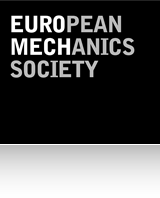Participation
Participation in a EUROMECH Colloquium is at the invitation of the Chairperson, and the success of the meeting will depend vitally on the quality and relevance of the participants chosen by the Chairperson. The typical number of participants at a EUROMECH Colloquium has been about 50, and experience shows that this number is large enough to provide variety of representation and small enough for serious and close discussion. Chairpersons should aim at a number between 40 and 60, and the number from outside the host country should always be at least half the total.
Provided the topic of the Colloquium has been chosen carefully and made sufficiently narrow, the number of the scientists in Europe who would want to take part should not be unduly large, but nevertheless a Chairperson does need to be selective. Participants should be actively interested in the subject of the Colloquium, and should have made useful contributions to it. People who have the capacity to discuss problems in an illuminating way are especially welcome. Many of the active and productive workers may be too young to be known internationally, and a special effort should be made to identify them. Considerations of prestige should be ignored when choosing participants, and formal representatives of organizations are not normally appropriate. There is no objection to the presence of a few research students from the host institution, but other "observers" should not be included.
Scientists who are working in the field of the Colloquium will be the best judges of suitability, and a Chairperson may seek suggestions and advice from the first few participants whom he/she identifies from his personal knowledge. Non-Europeans who are working in Europe at the time are of course eligible for invitation. A Chairperson should feel free also to invite a few scientists from outside Europe who are likely to make especially valuable contributions to the meeting.
Identifying the best participants is the most important part of a Chairperson´s job, and also the most difficult. He/she should not rest content with his list of invitees until it contains reasonable representation from all parts of Europe.
Provided the topic of the Colloquium has been chosen carefully and made sufficiently narrow, the number of the scientists in Europe who would want to take part should not be unduly large, but nevertheless a Chairperson does need to be selective. Participants should be actively interested in the subject of the Colloquium, and should have made useful contributions to it. People who have the capacity to discuss problems in an illuminating way are especially welcome. Many of the active and productive workers may be too young to be known internationally, and a special effort should be made to identify them. Considerations of prestige should be ignored when choosing participants, and formal representatives of organizations are not normally appropriate. There is no objection to the presence of a few research students from the host institution, but other "observers" should not be included.
Scientists who are working in the field of the Colloquium will be the best judges of suitability, and a Chairperson may seek suggestions and advice from the first few participants whom he/she identifies from his personal knowledge. Non-Europeans who are working in Europe at the time are of course eligible for invitation. A Chairperson should feel free also to invite a few scientists from outside Europe who are likely to make especially valuable contributions to the meeting.
Identifying the best participants is the most important part of a Chairperson´s job, and also the most difficult. He/she should not rest content with his list of invitees until it contains reasonable representation from all parts of Europe.
